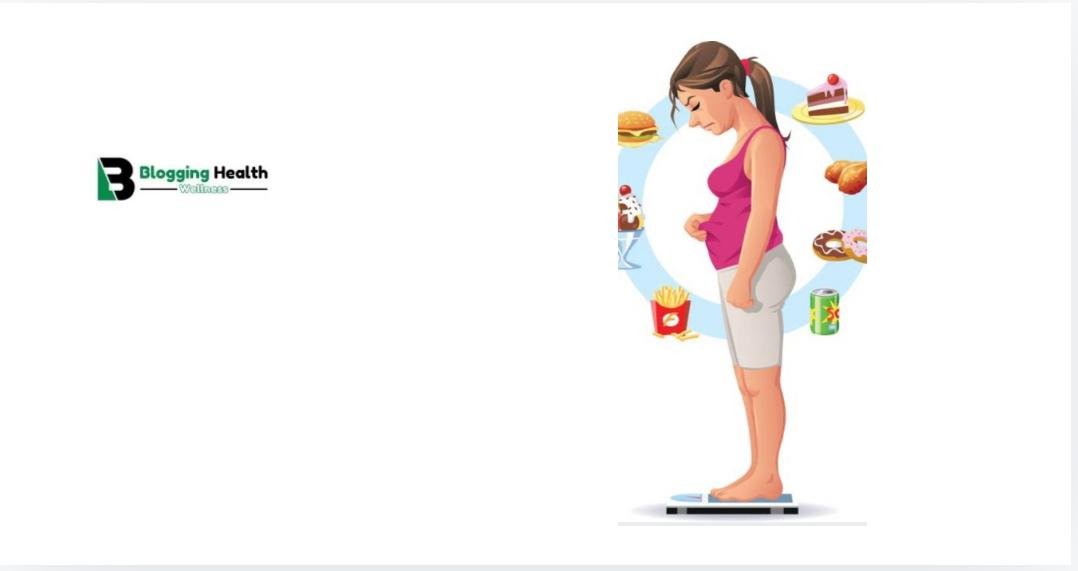How Diet Affects Body Fat Percentage emphasizes healthy eating habits which, if adopted correctly, can boost fitness levels, health status, and physical performance. This article will underscore the importance of diet in controlling body fat percentage and will help readers to choose how they want to eat to achieve their fitness objectives. We will discuss How Diet Affects Body Fat Percentage in terms of nutrition and its’ relationship with other important components such as shedding of fat and average body composition’s role in health.

Understanding Body Fat Percentage
Body fat percentage is the proportion of fat mass to total body weight. A systematic fat measuring method. Adequate measurement based on the assessment criteria of the given method or goal. A fat percent of the body is lower than the set point where fitness and performance is a primary goal, or at least determinants. Appropriate amount of body fat is defined as follows:
- Men: 6-24%
- Women: 16-30%
Excess body fat can lead to various health issues, including cardiovascular disease, diabetes, and joint problems, while too little body fat can also be detrimental to health.
Factors Influencing Body Fat Percentage
When talking about fat index, several factors have to be put into consideration. These include:
- Genetics: Genetic predispositions can affect fat distribution, metabolism, and how the body responds to diet and exercise.
- Physical Activity: Try to incorporate a workout routine into your day with emphasis on strength training and cardio. These exercises help gain muscular mass while shedding excess fat.
- Hormones: Hormone secretions, which can be directed by eating habits, life stressors and lifestyle can also cause a considerable influence over fat storage and the metabolic rate.
- Diet: Out of all three factors, body’s diet is the most close nexus to control nail one’s body fat percent.
The Role of Diet in Body Fat Management
1. Caloric Balance
In depth study and understanding of further factors which influence the amount of fat deposited in the body will be incomplete without starting with the most basic one: The existence of Caloric Balance – fat management.
- Caloric Surplus: If a higher number of calories is consumed than expended, such surplus caloric income does not just get ignored. Over a span of time, these calories are converted into usable body fats, hence an upward increase in body fat percentage.
- Caloric Deficit: Or less calories than the body emits. This is evident, hence their tactic undermines body fats instead.
2. Macronutrient Composition
The macronutrient composition of the diet—carbohydrates, proteins, and fats—can influence body fat percentage in different ways.
Carbohydrates
The very source of energy for the human body, carbohydrates when taken in moderation can lead to low levels of fats. It all depends on the type and amount of carbohydrates consumed, as explained below:
- Refined vs. Whole Carbohydrates: Refined carbohydrates (like white bread, pasties, and other sugary snacks) lead to increased blood sugar and insulin levels. Excess storage of insulin will consequently result in the storage of fats. On the other hand, whole carbohydrates (like whole grain, fruits, and vegetables) will generally provide fibers and nutrients that will keep you fuller as well as regulate your blood sugar levels.
- Carbohydrate Timing: Carbohydrates ingested close to workout times can lead to increased performance and recovery with minimum fat retention.

Proteins
Protein is necessary to repair damaged muscles as well as gain muscle and fullness. If one eats protein more than usual, it can assist in fat loss in three different ways.
- Satiety: Protein-rich foods promote a feeling of fullness, which can reduce overall calorie intake.
- Muscle Preservation: During weight loss, a higher protein diet can help preserve lean muscle mass, which is essential for maintaining metabolic rate.
Fats
Another important factor in having a lean figure- Healthy fats can be beneficial in fat loss without compromising on overall health.
- Healthy Sources: Avocados, nuts, seeds, and olive oil are all rich in essential fatty acids and enhance fullness.
- Hormonal Balance: There are various hormones responsible for fat storage and hormones responsible for food intake. Hormones are produced from fats, thus, ensuring a balanced diet of fats will ensure there are metabolically active hormones in the body.
3. Food Quality
The quality and quantity of food consumed are of equal importance. Whole and unrefined foods have fewer calories than processed foods and take a bit longer to chew.
- Nutrient Density: Foods that contain vitamins, minerals, and antioxidants such as fruits, vegetables, whole grains and lean proteins–are more beneficial for the body as they boost overall health as well as metabolic function.
- Added Sugars and Unhealthy Fats: Added sugars and unhealthy fats such as trans fats and too much saturated fat at even an intake level can increase body fat and make the individual prone to chronic diseases.
Strategies for Reducing Body Fat Percentage
1. Balanced Diet
And certainly, one needs to have a balance of all macronutrients that is carbohydrates, proteins, and fats in a bid to manage body fat percentage. Consider:
- Whole Foods: Whole foods should come before refined foods instead of vice versa individually.
- Portion Control: Make use portions especially when on a caloric deficit and aim for fat loss as the goal.
2. Meal Timing and Frequency
For the most part, caloric intake (whether high or low) will almost entirely dictate the burning of fat from the body and in such instances even the timing of meals can be influential:
- Regular Meal Patterns: Taking meals as well as snacks at the standard time intervals works to help maintain blood sugar and lessen cravings.
- Post-Workout Nutrition: A balanced diet after exercise that consists of carbohydrates and protein helps in improving recovery and also retaining muscle mass.
3. Hydration
Hydration can make a person more energetic and potentially help with fat burning. Take note that, at times, what might be mistaken for hunger may actually be a requirement for fluids. Controlling appetite and improving metabolic functions are possible through drinking plenty of water.

4. Mindful Eating
Mindful eating can aid in overeating prevention due to enhanced sensitivity to hunger and satiety. Some of them are:
- Taking Time to Eat: Relishing food can be easier when one does not rush through meals and this can also lead to a sense of fullness.
- Obeying Hunger: Do not eat primarily out of boredom; only eat when there are signs of hunger.
The Impact of Lifestyle on Diet and Body Fat
It should also be noted that even though diet affects body fat percentage the most, the case is not so with lifestyle:
1. Physical Activity
Engaging in physical activities on a regular basis leads to a greater energy expenditure, muscle growth and subsequently a higher basal metabolic rate. It has been shown that the combination of aerobic exercises and resistance training can be very beneficial for reducing body fat.
2. Sleep Quality
Obesity and body fat percentage are both associated with shorter sleep duration. Sleep deprivation can lead to a number of hormonal changes, especially those regulating appetite, which can increase the tendency to overeat. It is recommended that a total of seven to nine hours of sleep should be attempted on a nightly basis.
3. Stress Management
Stress can shift hormonal balance resulting in fat gain in areas such as the abdomen. It is useful to employ stress management strategies, including yoga, meditation, and deep-breathing, to lessen their consequences.
The Importance of Individualization
One should appreciate that body responses to exercise and diet are varied and unique to an individual. Age, sex, genetic predisposition, and even metabolism can also determine the percentage of body fat with reference to the diet.
1. Personalized Nutrition Plans
To reach optimal body fat percentage, a structured nutritional strategy can aid in the achievement. Some of the considerations are:
- Body Composition Goals: Whether the goal is to lose fat, gain muscle, or maintain weight, a tailored approach is essential.
- Food Preferences: Incorporating preferred foods can enhance adherence to a diet plan.
2. Monitoring Progress
Regularly monitoring progress through methods such as body composition analysis, measurements, or photos can help individuals adjust their diet and exercise routines as needed.
Conclusion
Diet plays a pivotal role in determining body fat percentage, affecting energy balance, macronutrient composition, and overall health. By focusing on nutrient-dense foods, practicing mindful eating, and maintaining an active lifestyle, individuals can effectively manage their body fat percentage. Understanding the intricate relationship between diet and body composition empowers individuals to make informed choices that align with their health and fitness goals. Remember, sustainable changes take time, so be patient and consistent on your journey toward achieving a healthy body fat percentage!


